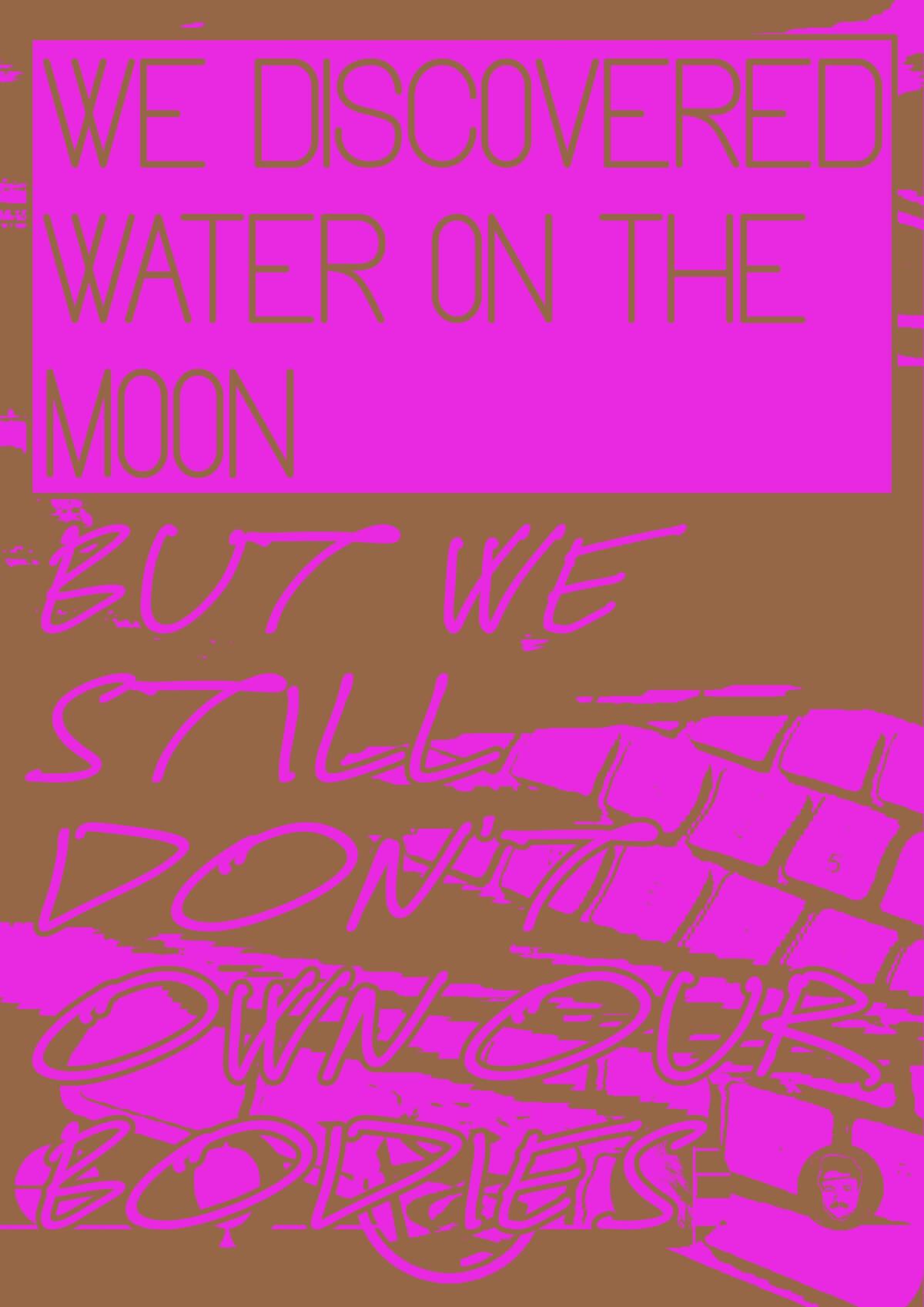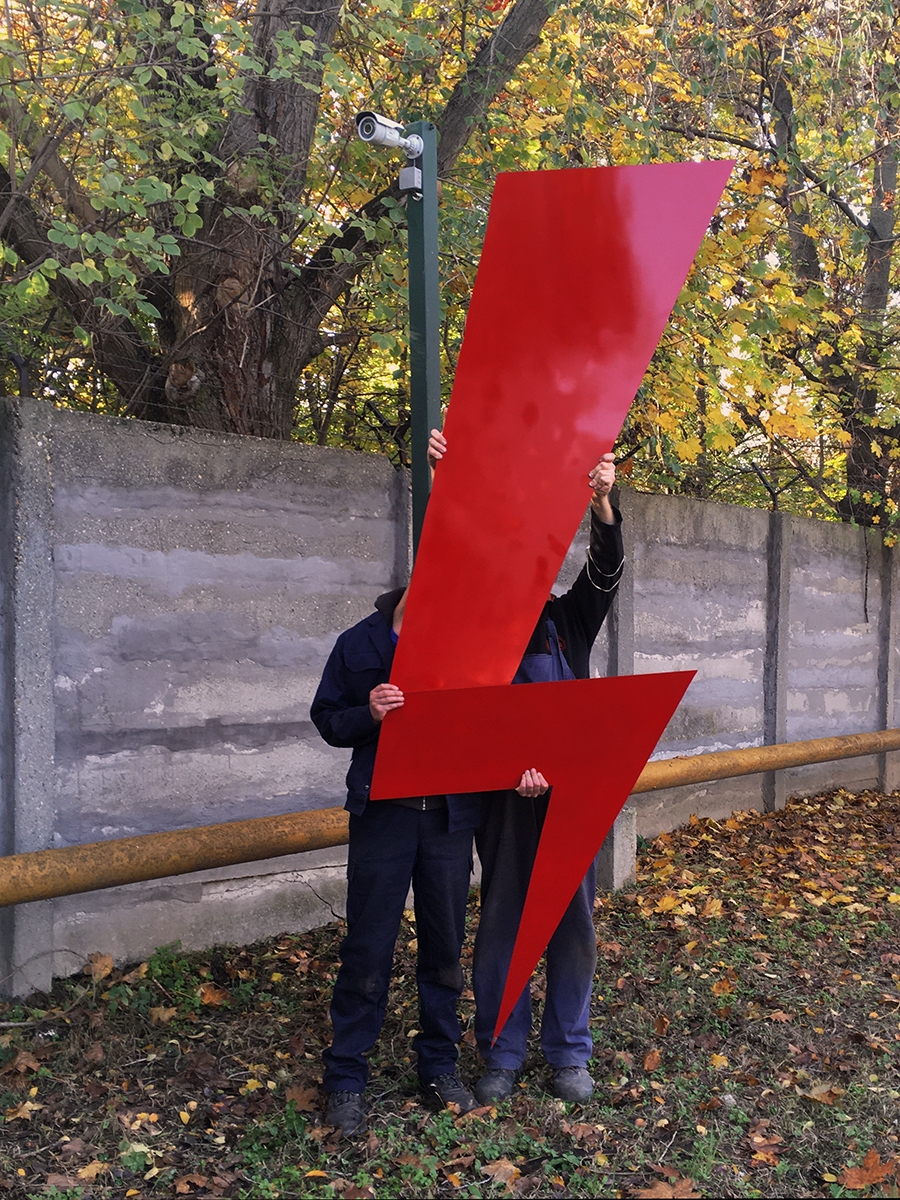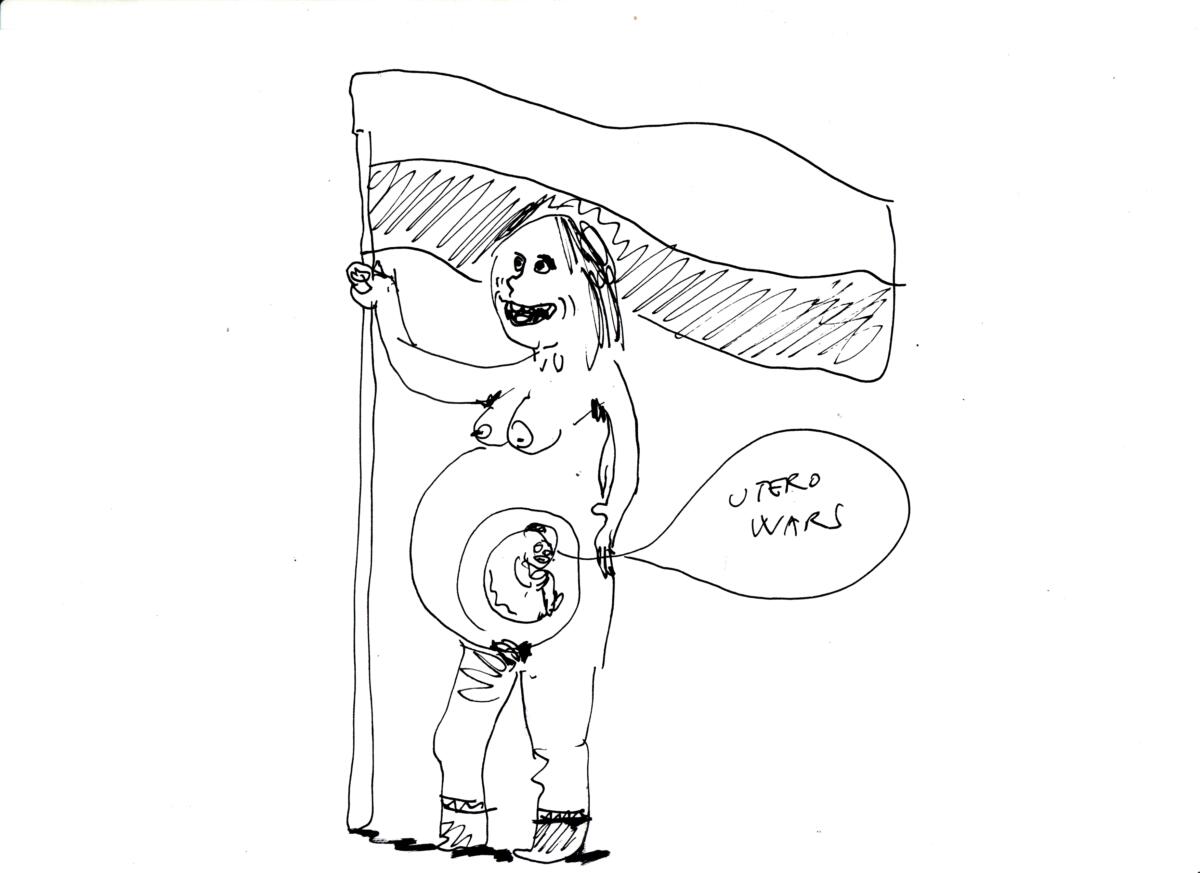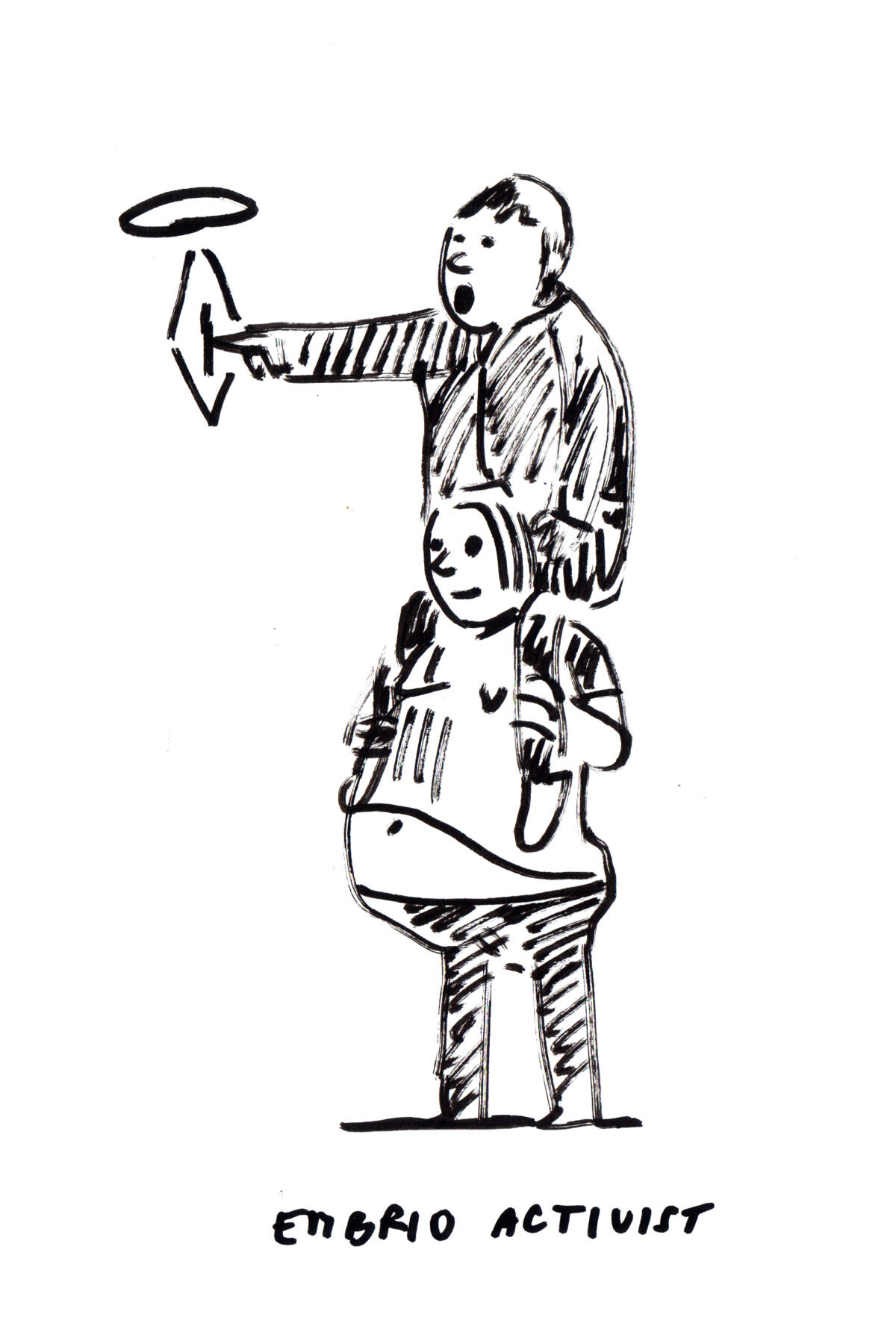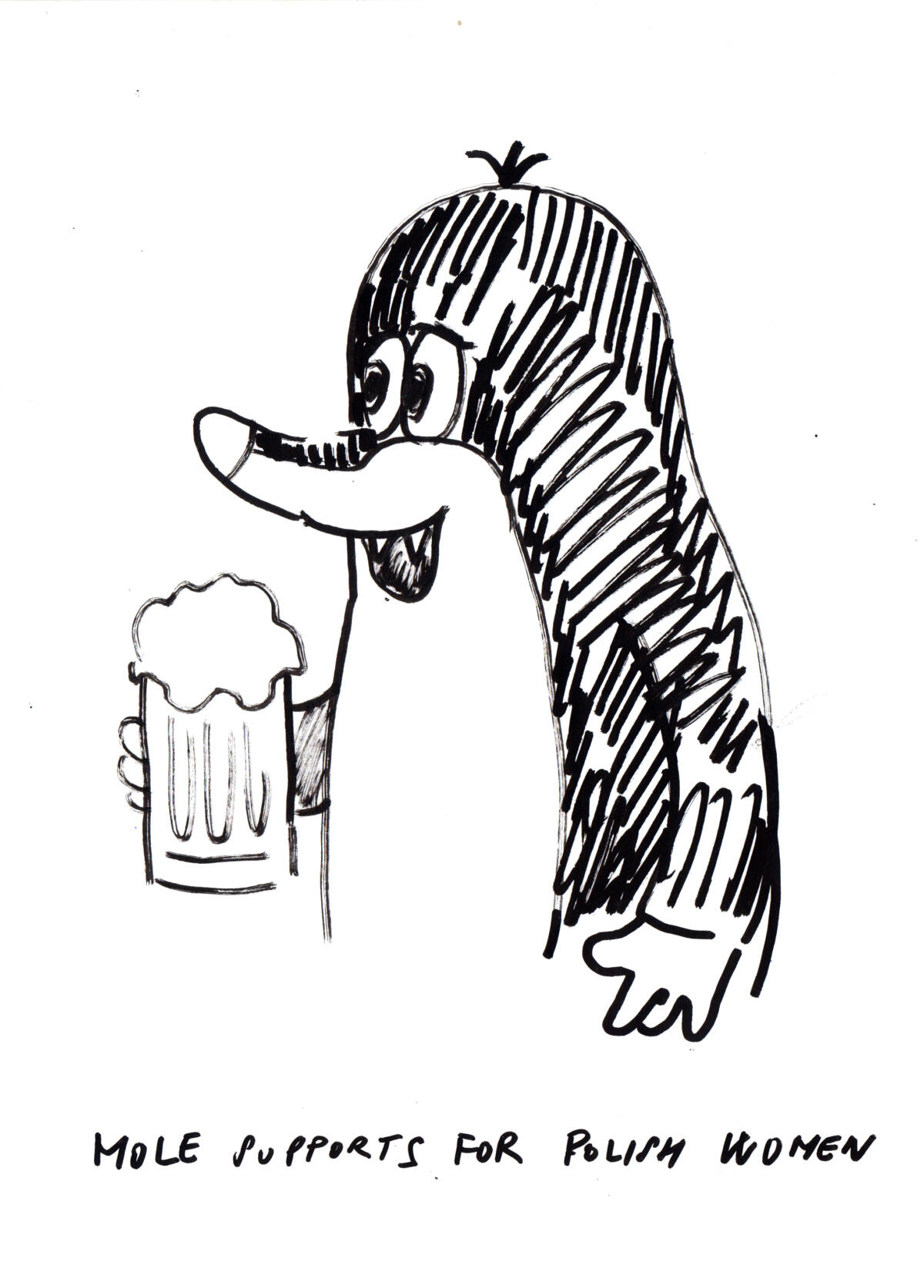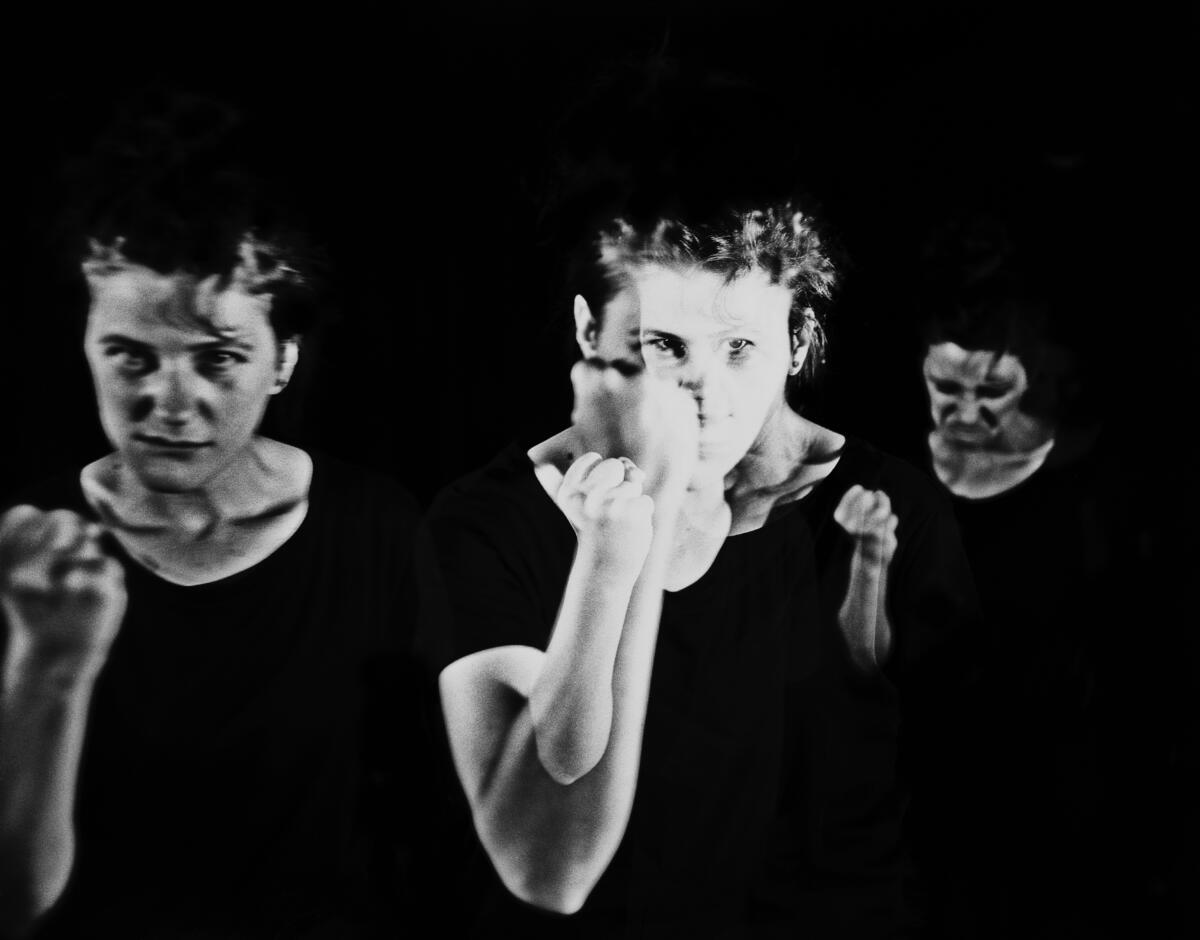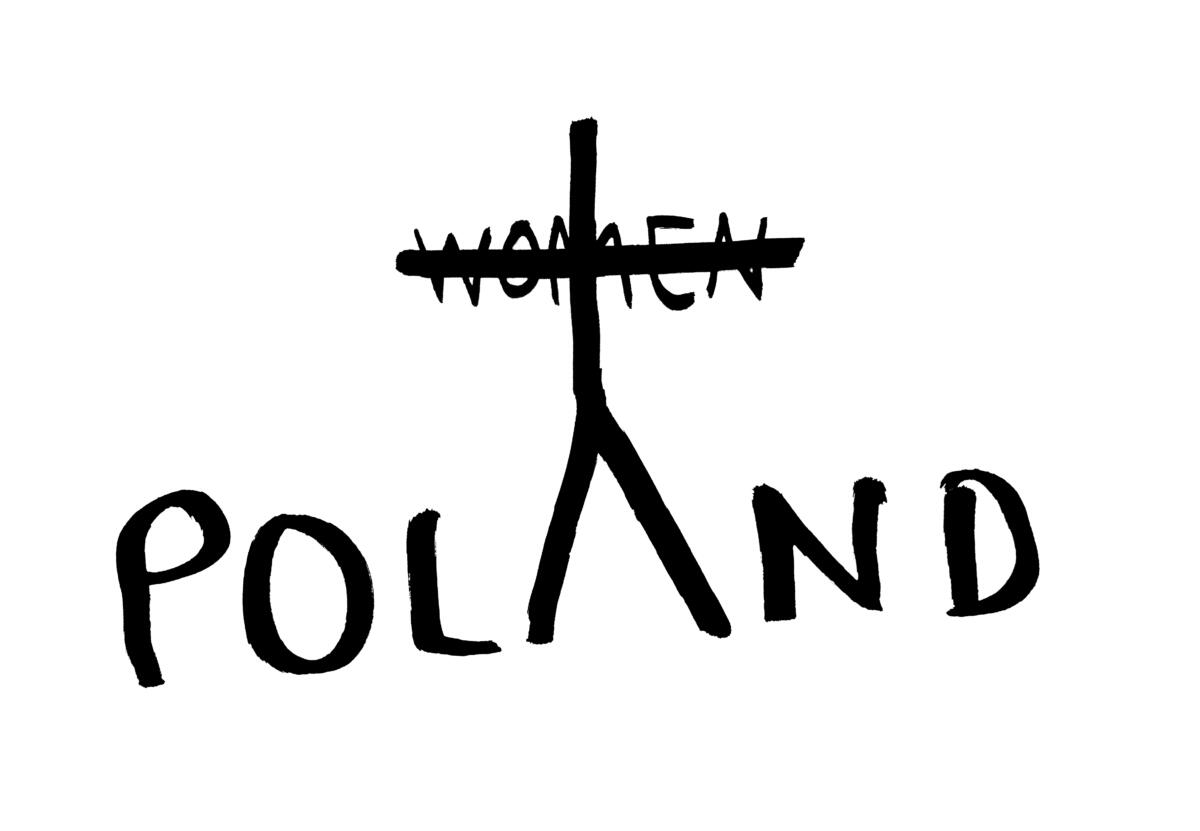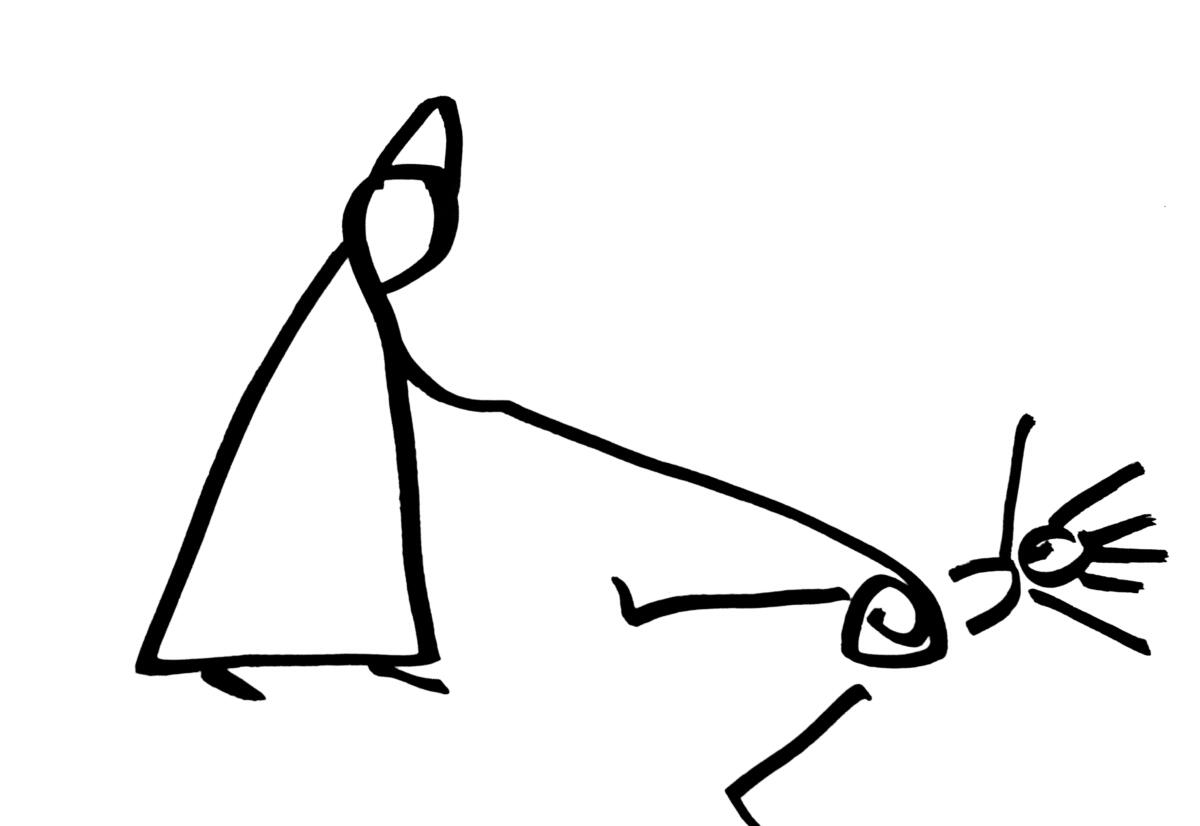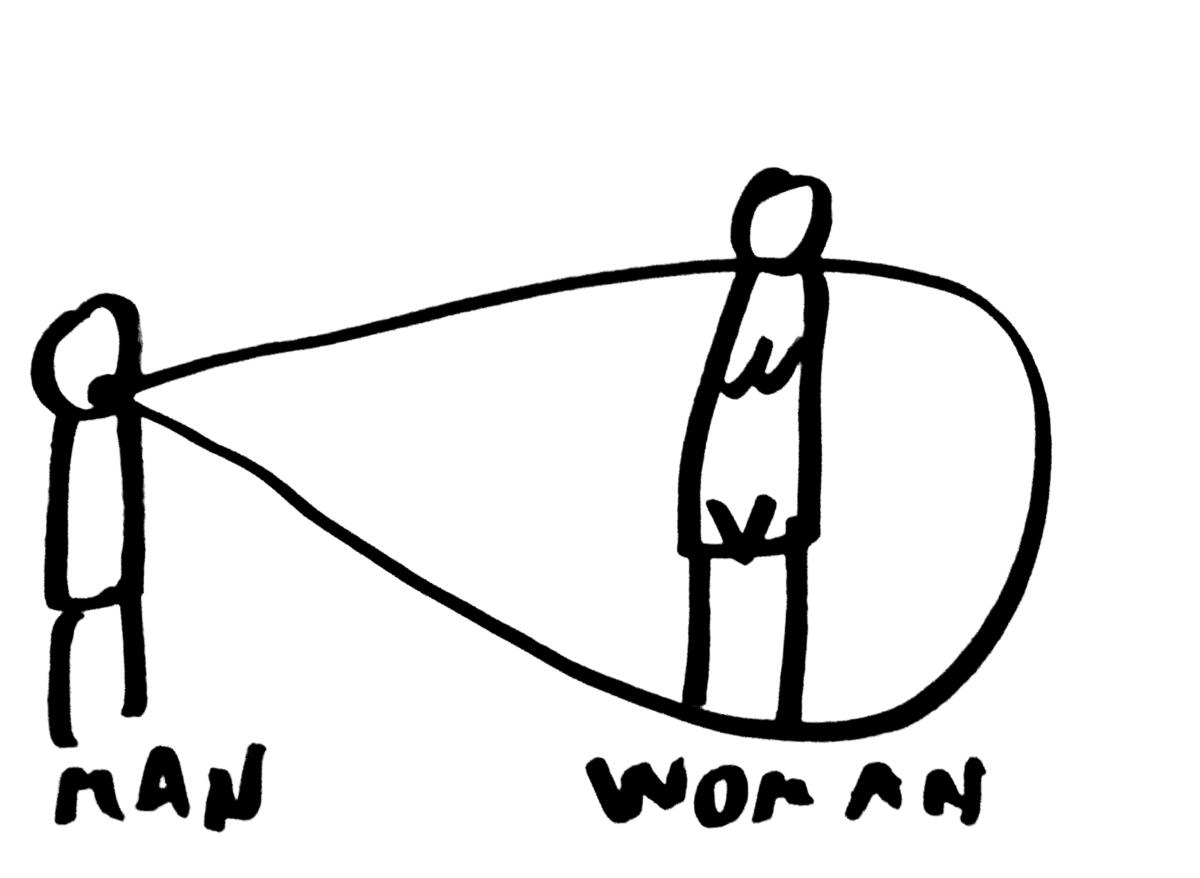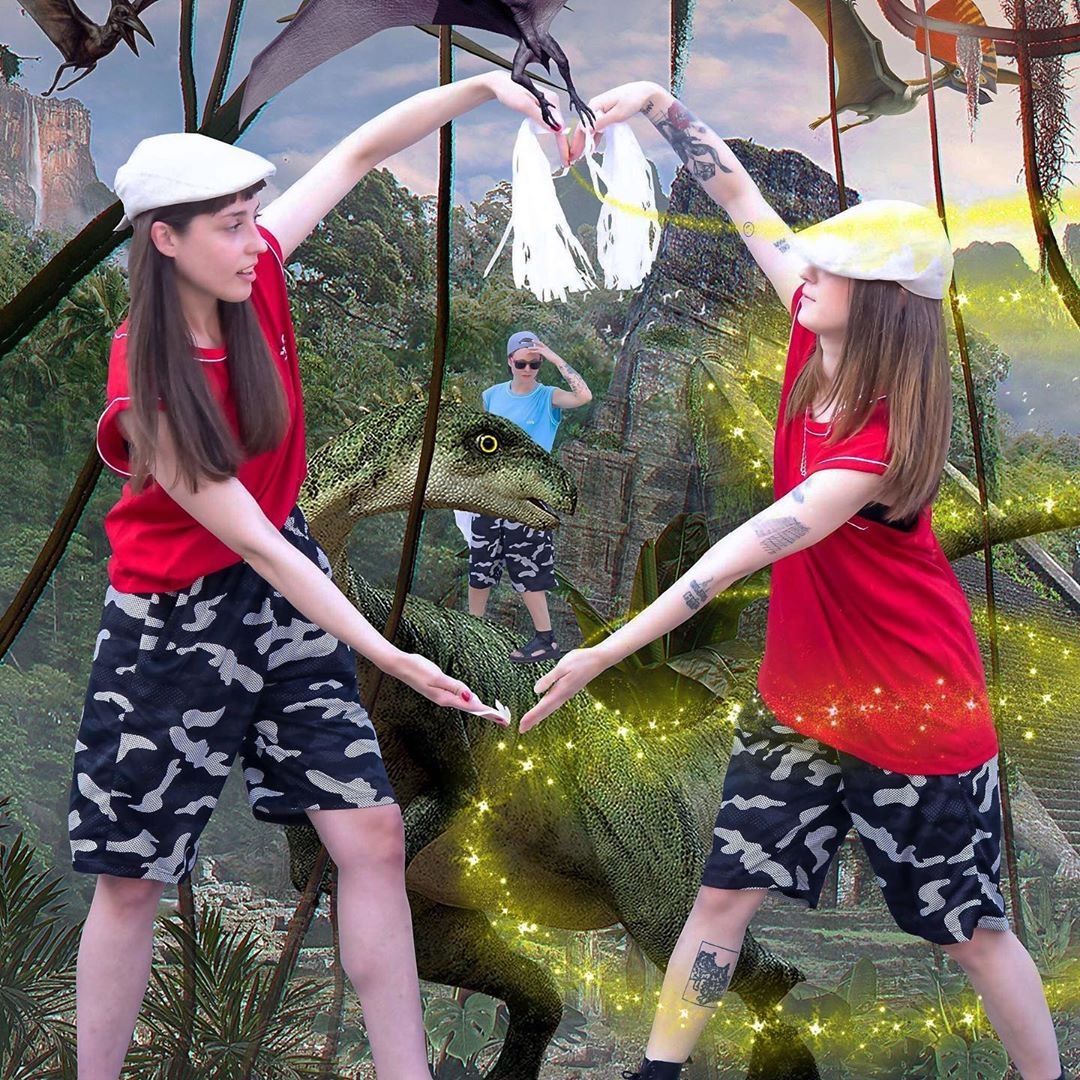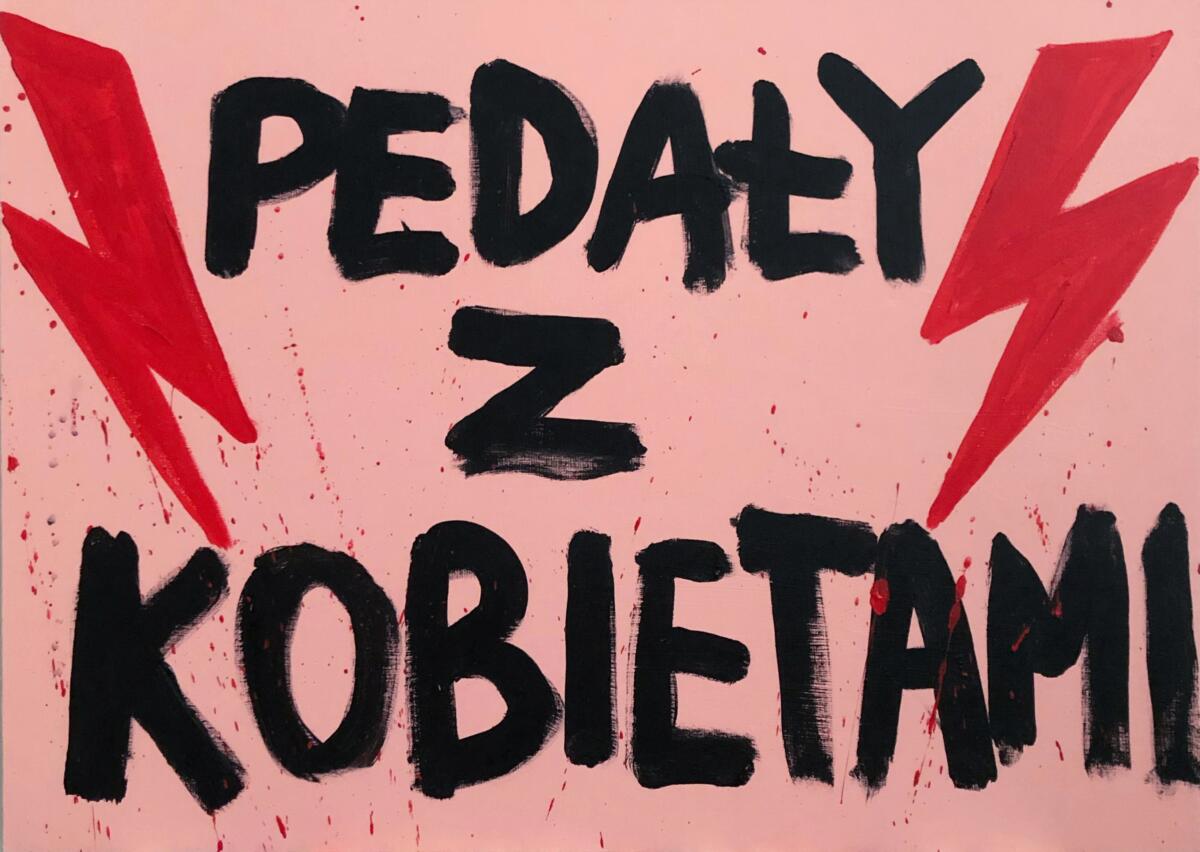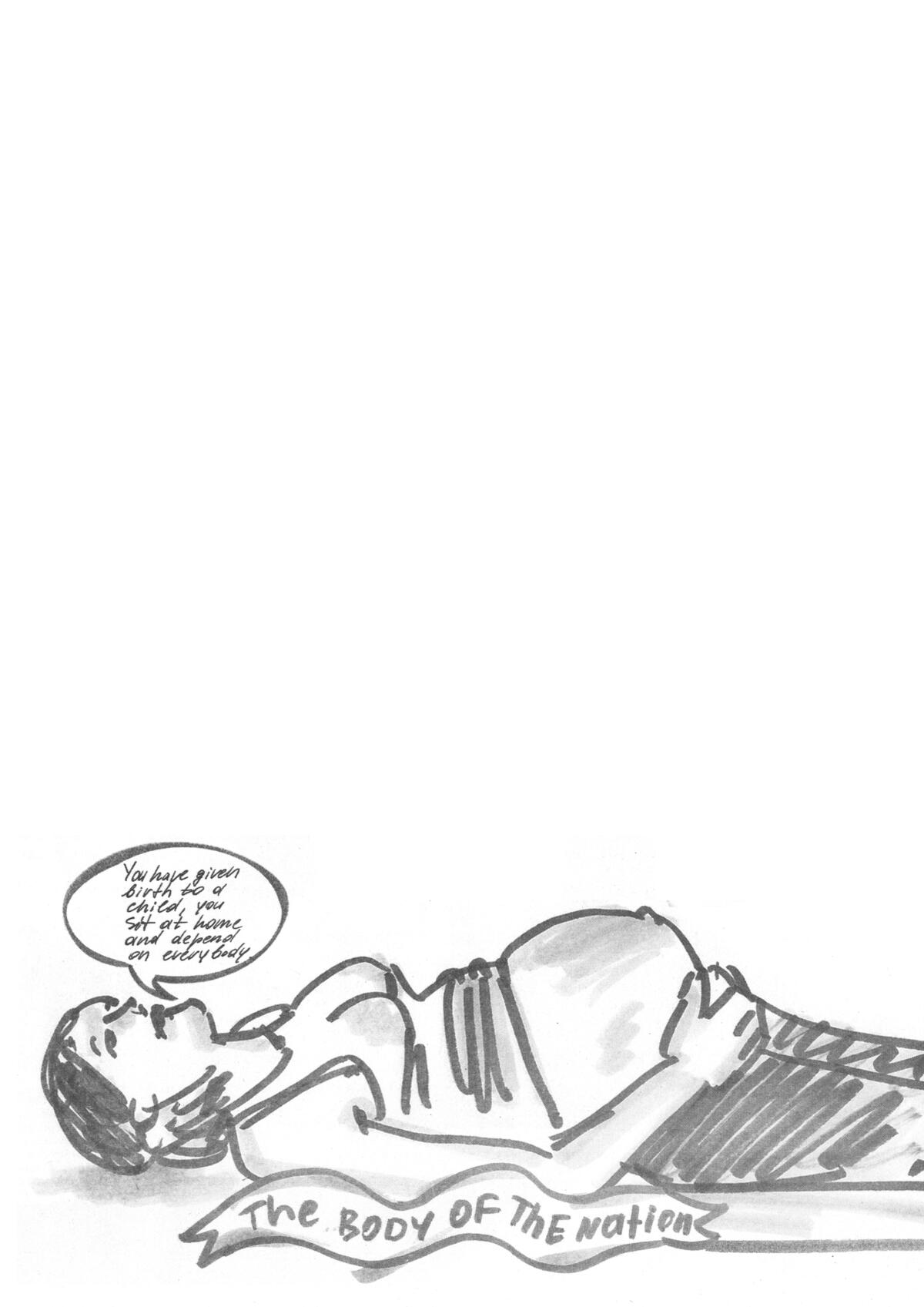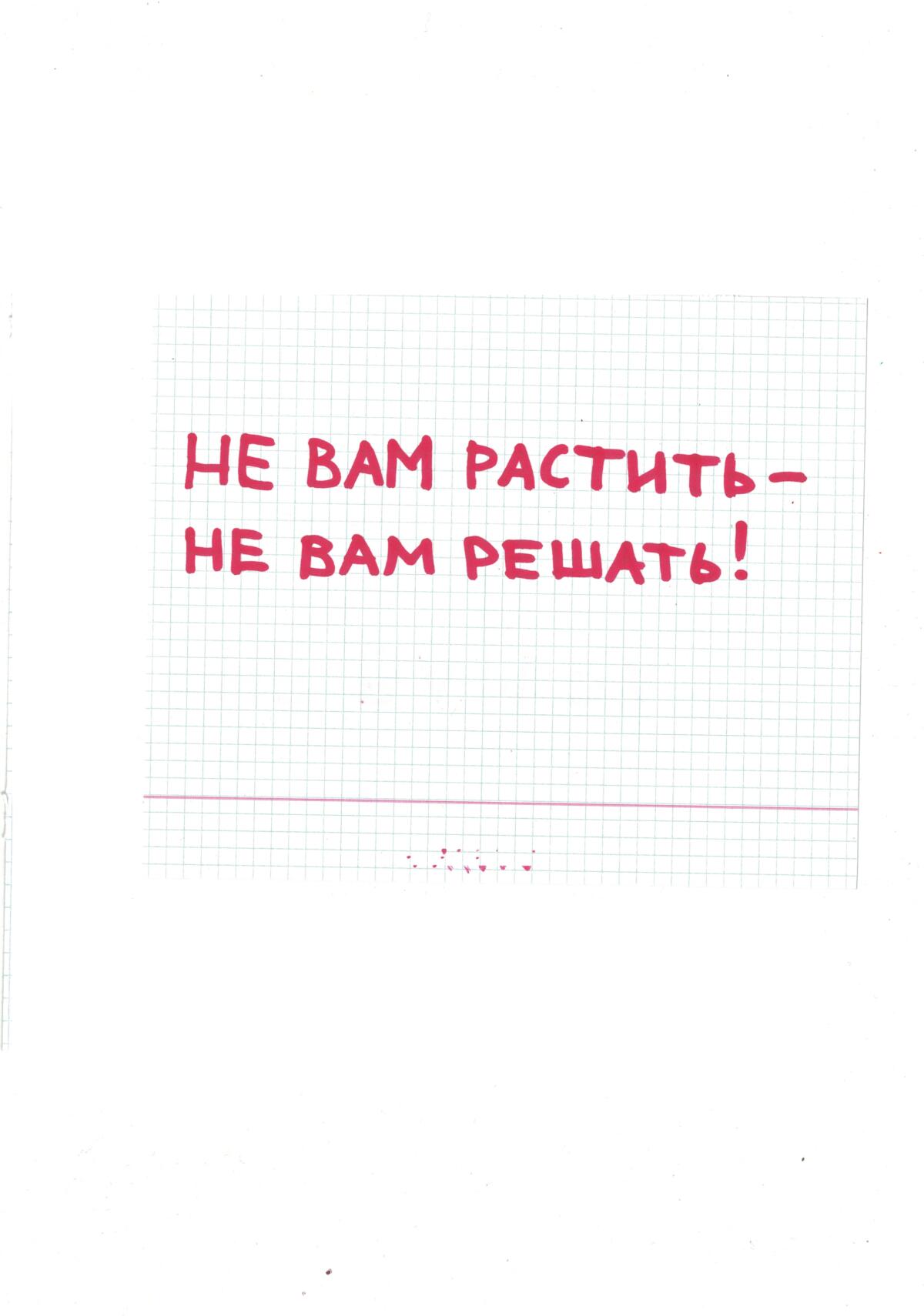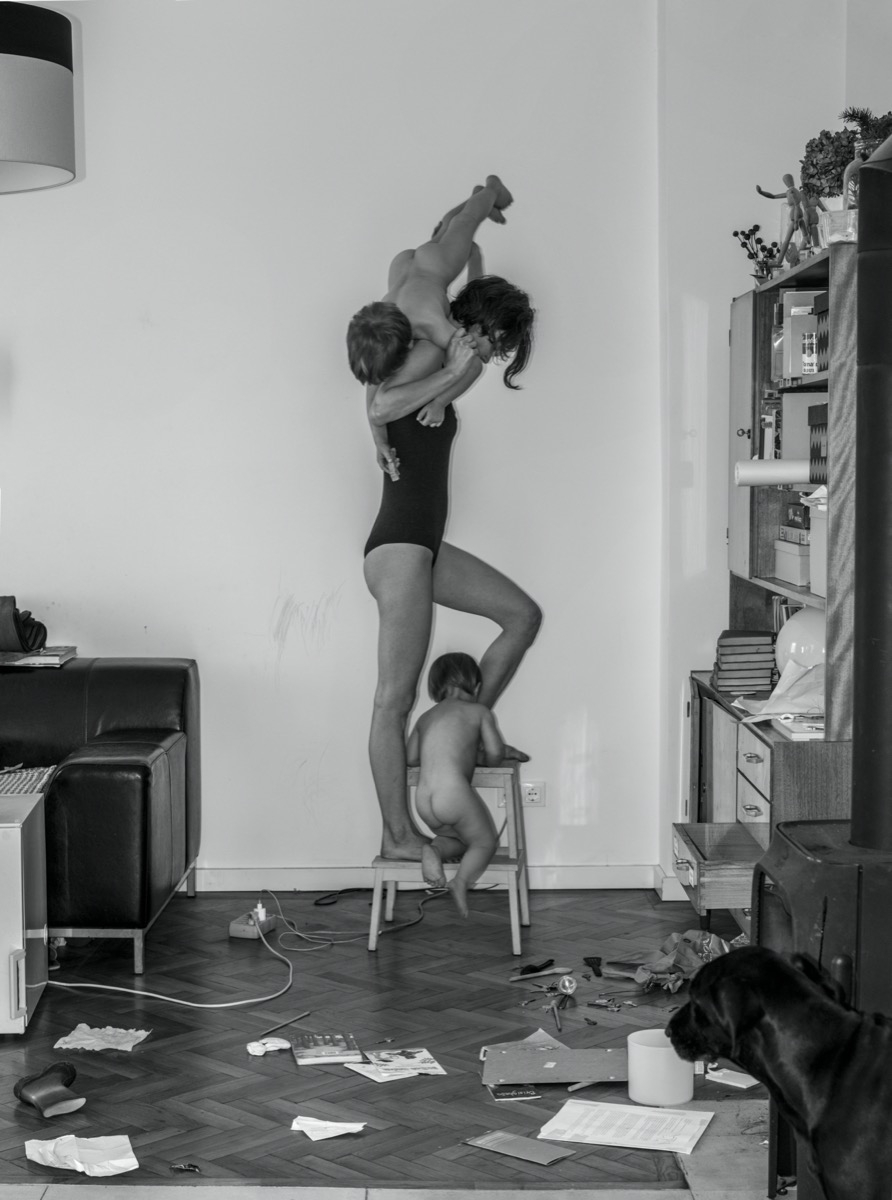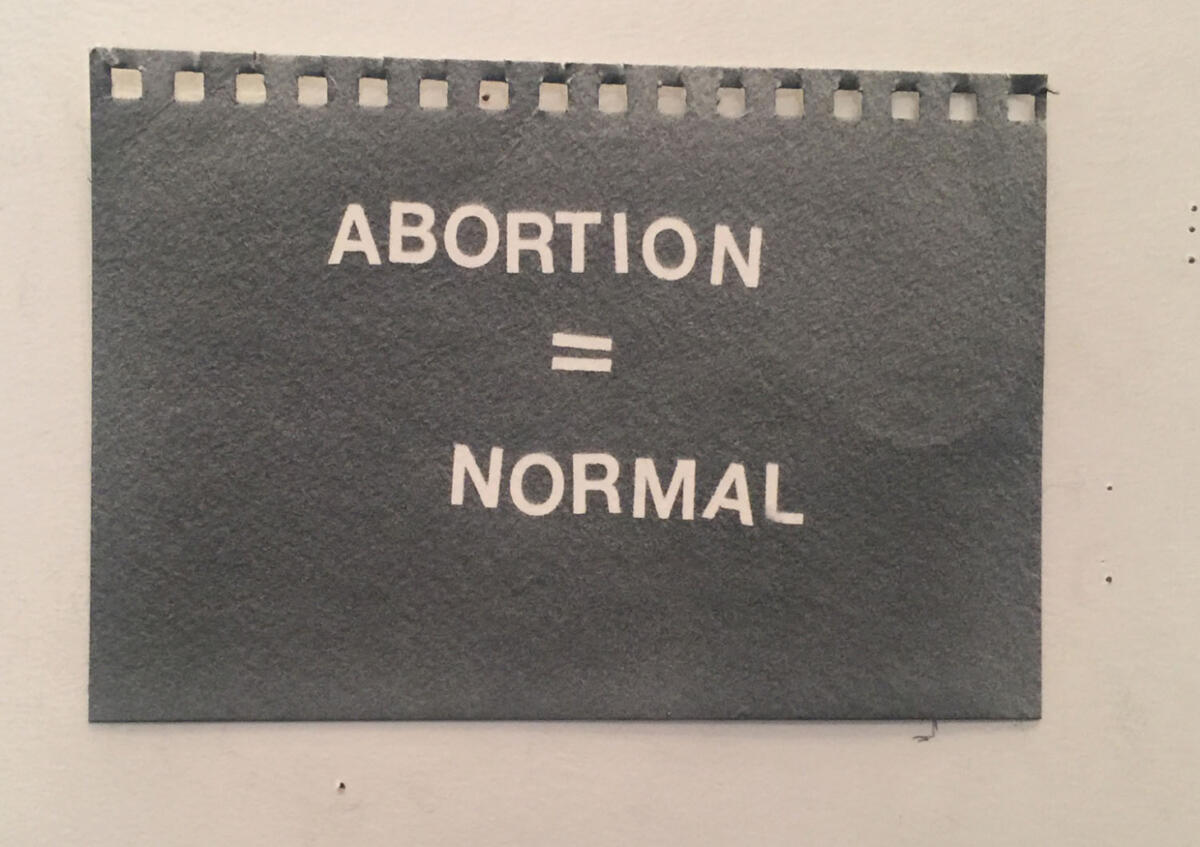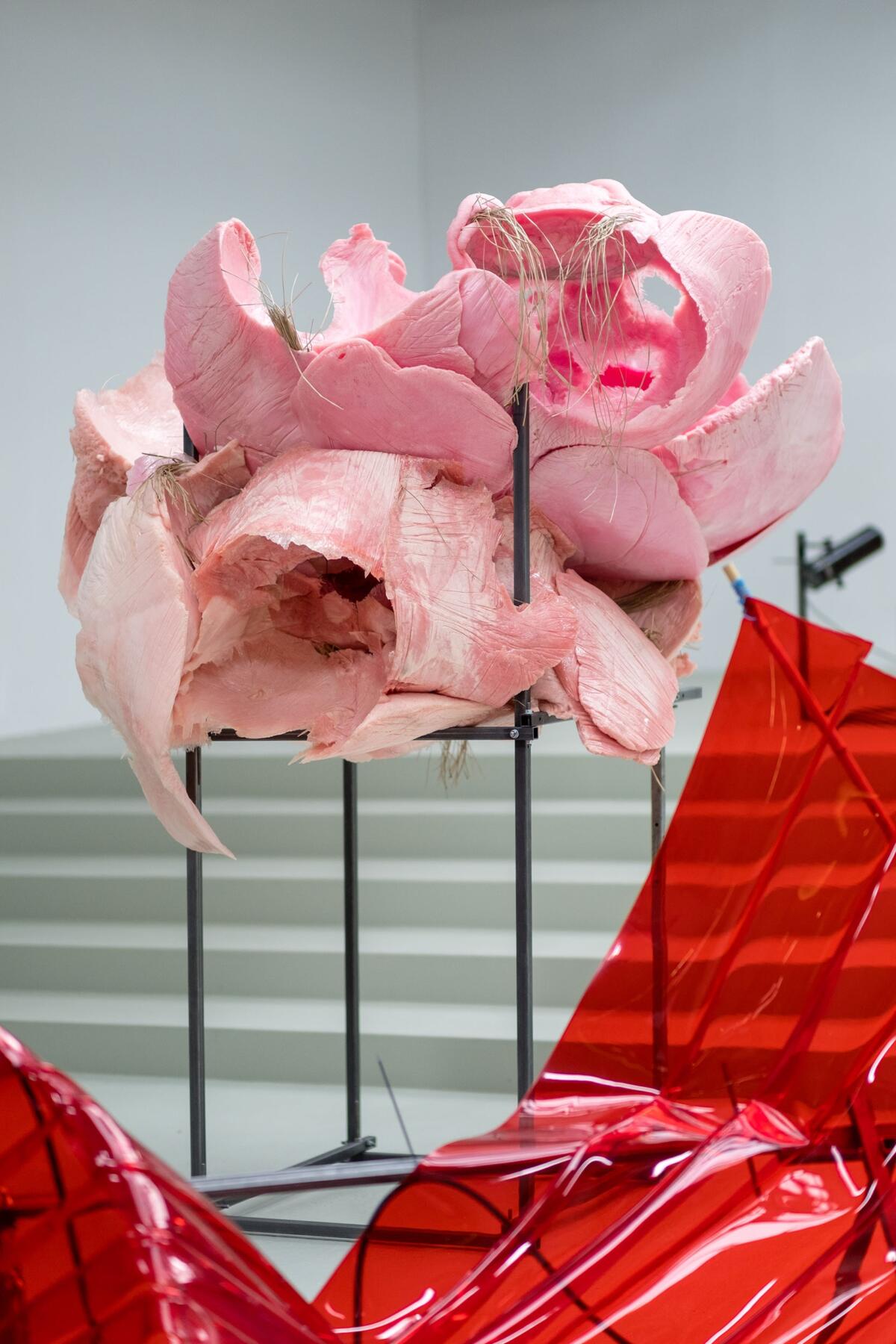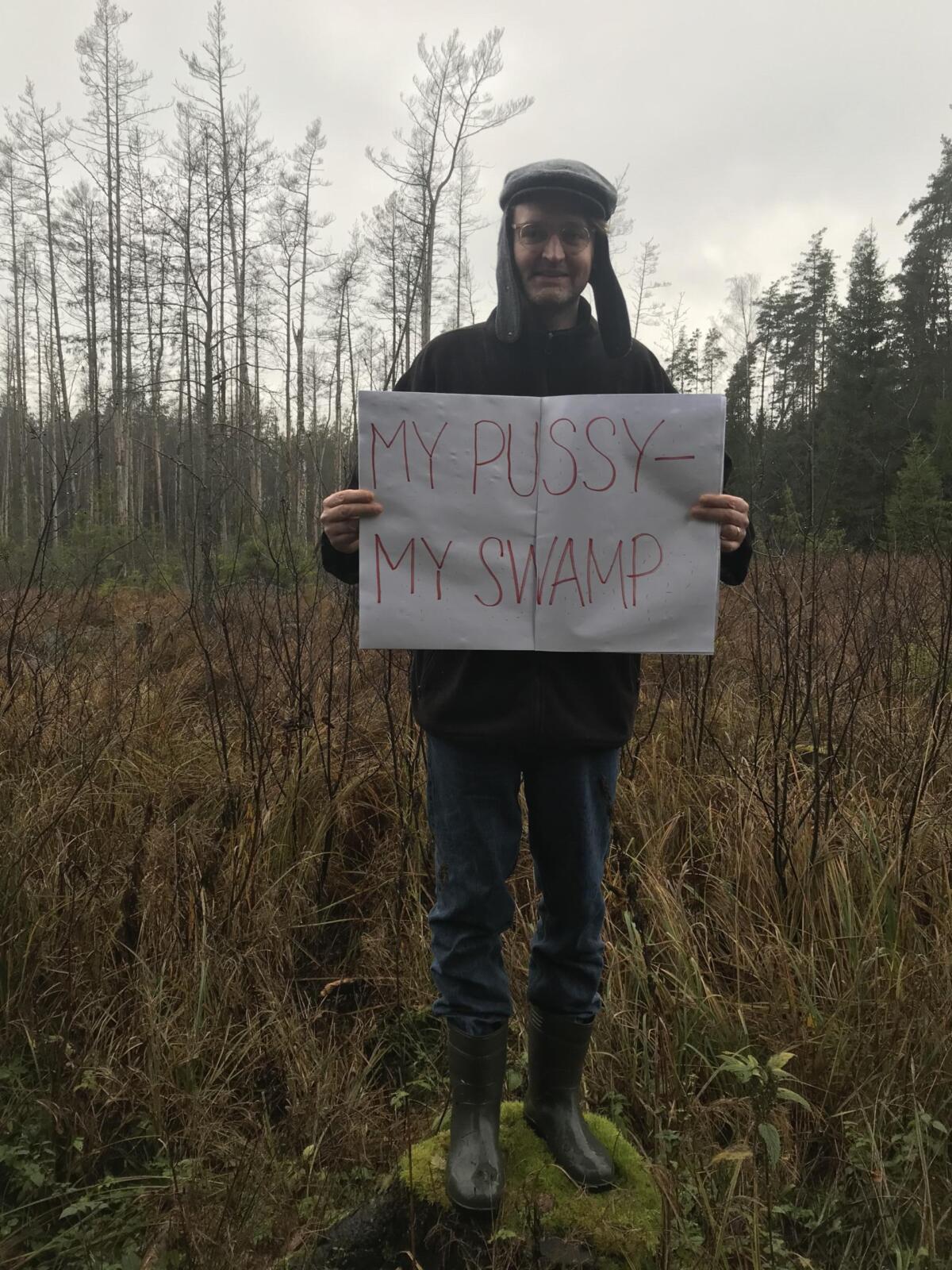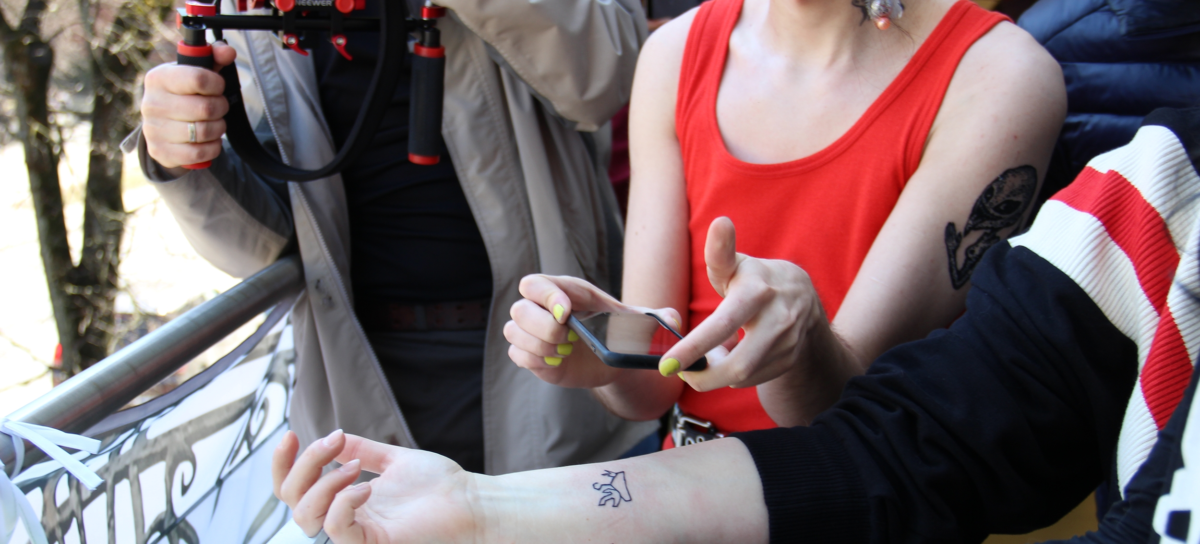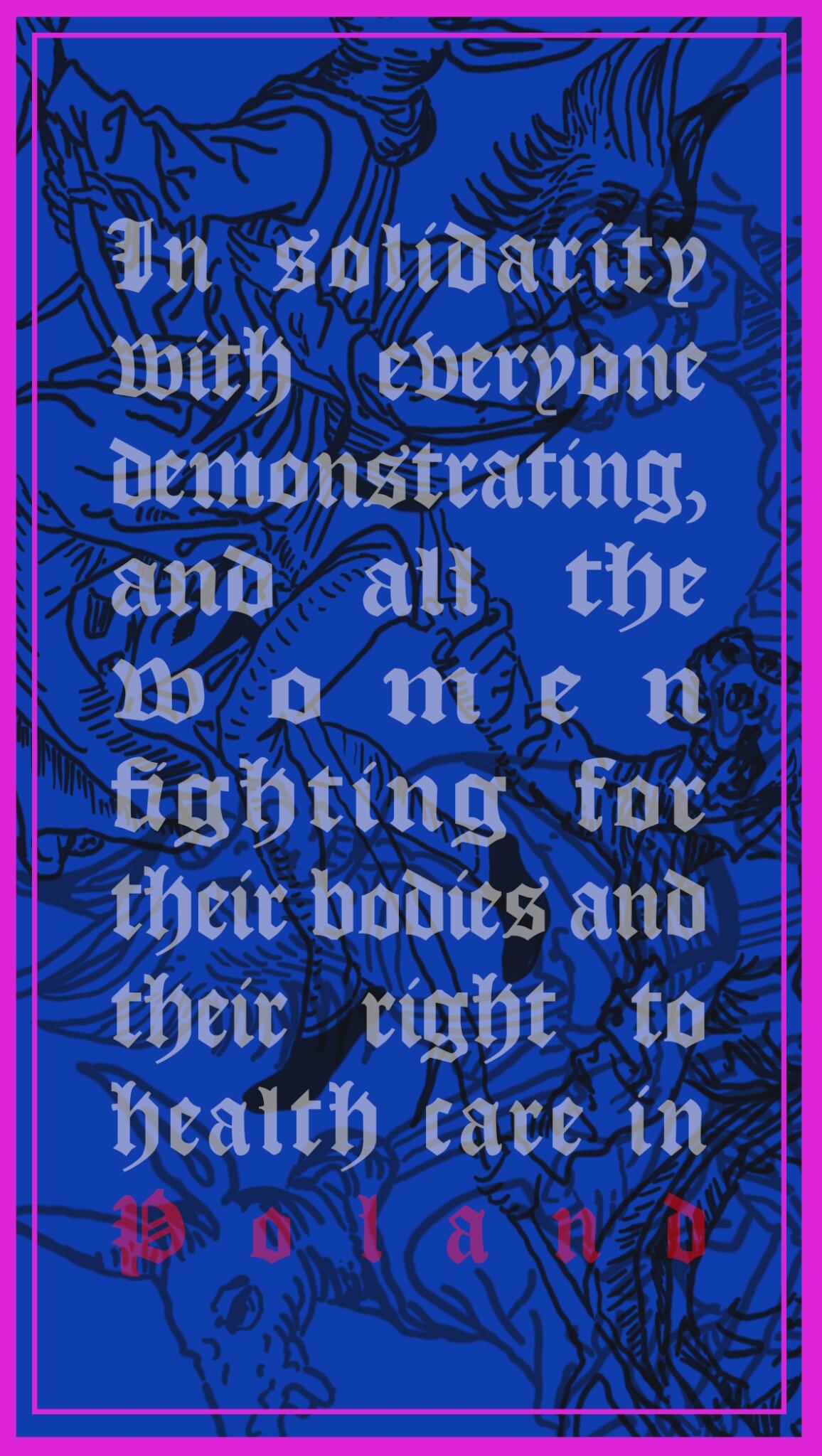![[EN/PL] Women’s rights are human rights.](http://blokmagazine.com/wp-content/uploads/2020/11/oneday10-1200x801.jpg)
Judith Bernstein, Ágnes Eperjesi, Dorota Gawęda and Eglė Kulbokaitė, GolfClayderman, Daiga Grantina, Agnė Jokšė, Renata Kaminska, Valentinas Klimašauskas, Laima Kreivytė, Agnieszka Kurant, Kris Lemsalu, Maria Loboda, Marek Meduna, Marina Naprushkina, Margot Norton, Markéta Othovà, Pakui Hardware, Dan Perjovschi, Gailė Pranckūnaitė, Peter Puklus, Karol Radziszewski, Anka i Wilhelm Sasnalowie, Emilija Škarnulytė, Milica Tomić, Betty Tompkins, Dominika Trapp, Evita Vasiljeva, Artur Żmijewski
[EN]
On Thursday, October 22nd 2020, with reported cases of COVID-19 at their highest levels to date, the Constitutional Tribunal of Poland voted termination of a severely impared fetus to be unconstitutional. Until that voting, abortion was only available to women in three cases: if the pregnancy posed a risk to the life and health of the woman, fetal defect, and if the pregnancy is a result of a crime. What this decision effectively does is render the life of the pregnant woman inconsequential, prioritizing the pregnancy, no matter the anticipated quality of life post-birth, over the mental and physical wellbeing of the pregnant woman.
How women govern our own bodies is not a matter of the public domain. Until women are recognized under the law as autonomous beings with the basic human right to declare what is best for our own bodies, we will not be equal politically or socially. When abortion is criminalized, when choice is removed, the welfare of the nation is jeopardized. Women are more than the summary of our reproductive organs. This is not a woman’s issue, it is a humanitarian issue, and is one that is unfortunately constantly in need of defense.
We stand with protestors against this ruling. In support of these actions, we have invited artists, curators, gallerists, and other members of the international arts community to voice their allyship with the women of Poland, and for women’s rights globally. These responses and reflections will be updated regularly.
Women’s rights are human rights.
In solidarity.
The Editorial Team of BLOK Magazine:
Ewa Borysiewicz
Adam Mazur
Gabriela Marciniak
Maria Rubersz
Tytus Szabelski
Katie Zazenski
[PL]
W czwartek, 22 października 2020 r., w momencie kiedy odnotowywano rekordowo wysoką ilość przypadków zachorowań na COVID-19, polski Trybunał Konstytucyjny uznał przerywanie ciąży w przypadku poważnych wad płodu za niekonstytucyjne. Do tego momentu aborcja dla kobiet w Polsce była dostępna tylko w trzech przypadkach: jeśli ciąża zagrażała życiu i zdrowiu kobiety, jeżeli stwierdzono ciężkie i nieodwracalne upośledzenie płodu lub jego nieuleczalną chorobę oraz jeśli ciąża była wynikiem przestępstwa. Decyzja TK powoduje, że życie kobiety ciężarnej staje się nieistotne, nadając pierwszeństwo ciąży nad dobrostanem psychicznym i fizycznym ciężarnej, niezależnie od przewidywanej jakości życia po porodzie.
Sposób, w jaki kobiety dysponują swoimi ciałami, nie jest kwestią publicznej debaty. Dopóki kobiety nie zostaną uznane przez państwo za autonomiczne istoty z podstawowym prawem człowieka do decydowania o tym, co jest najlepsze dla ich ciał, nie będziemy równi politycznie ani społecznie. Kiedy aborcja jest penalizowana, kiedy pozbawia się kobiety wyboru, dobro narodu jest zagrożone. Kobieta to coś więcej, niż tylko suma jej narządów płciowych.
Wyrok TK nie dotyczy tylko kobiet: jest to kwestia humanitarna, która, niestety, nieustannie potrzebuje obrony. Sprzeciwiamy się temu orzeczeniu i stoimy po stronie protestujących. Aby wesprzeć i nagłośnić strajk kobiet, zaprosiliśmy artystów i artystki, kuratorów i kuratorki, galerzystów i galerzystki oraz członków i członkinie międzynarodowej społeczności artystycznej do wyrażenia swojej solidarności z polskimi kobietami i wsparcia dla praw kobiet na całym świecie. Nadesłane odpowiedzi i refleksje będą regularnie publikowane na naszej stronie.
Prawa kobiet to prawa człowieka.
Solidarnie,
Zespół redakcyjny magazynu BLOK:
Ewa Borysiewicz
Adam Mazur
Gabriela Marciniak
Maria Rubersz
Tytus Szabelski
Katie Zazenski
***
Oleksiy Radynski
2014 Greetings from Kyiv to 2020 Warsaw
***
Jitka Hanzlova
***
Pakui Hardware & Gailė Pranckūnaitė
***
Milica Tomić
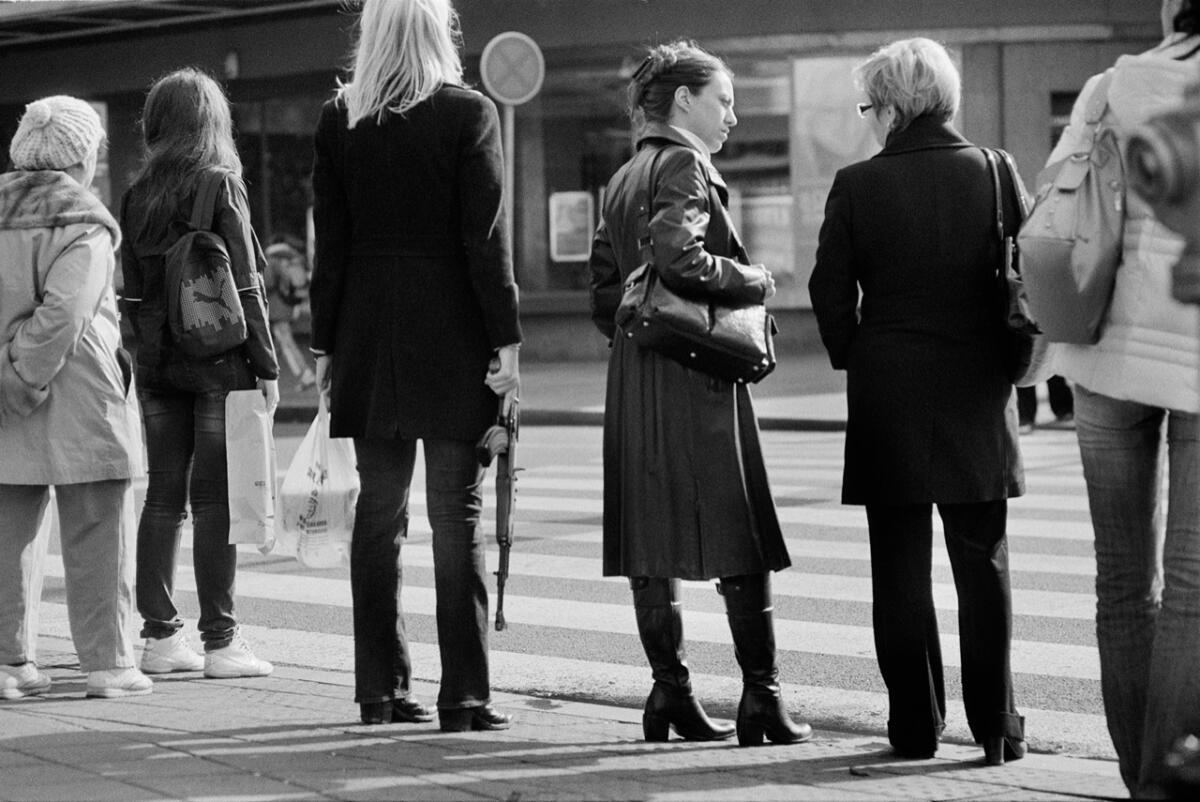

***
Markéta Othovà
***
Evita Vasiljeva
***
Ágnes Eperjesi
Act of solidarity by closely watched metalworkers.
***
Emilija Škarnulytė
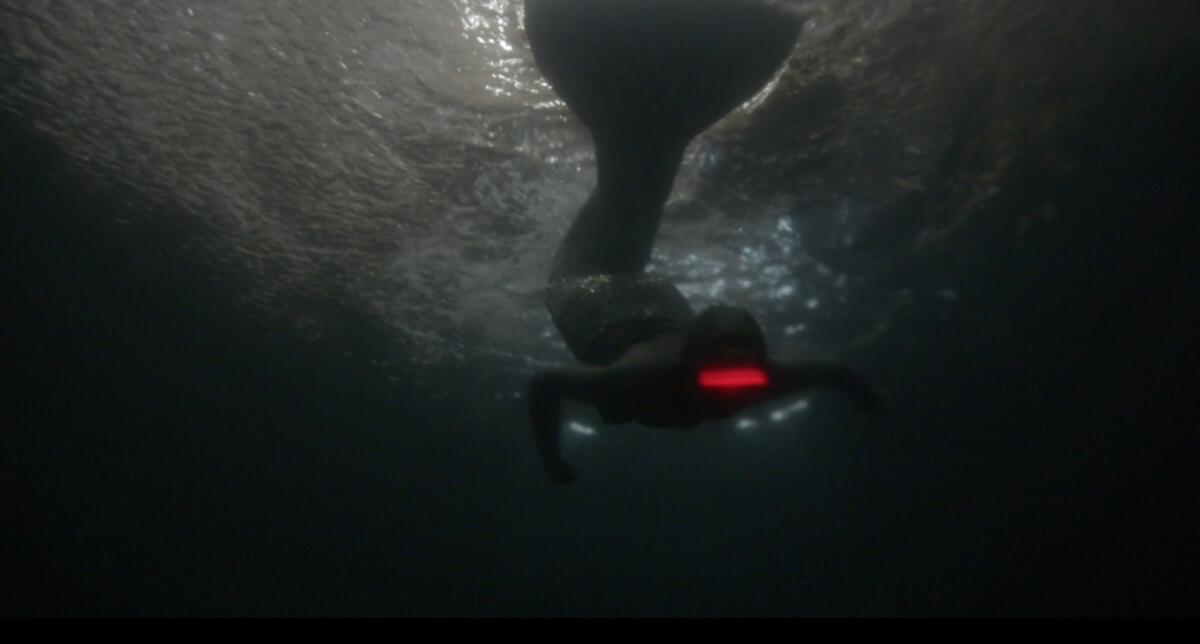
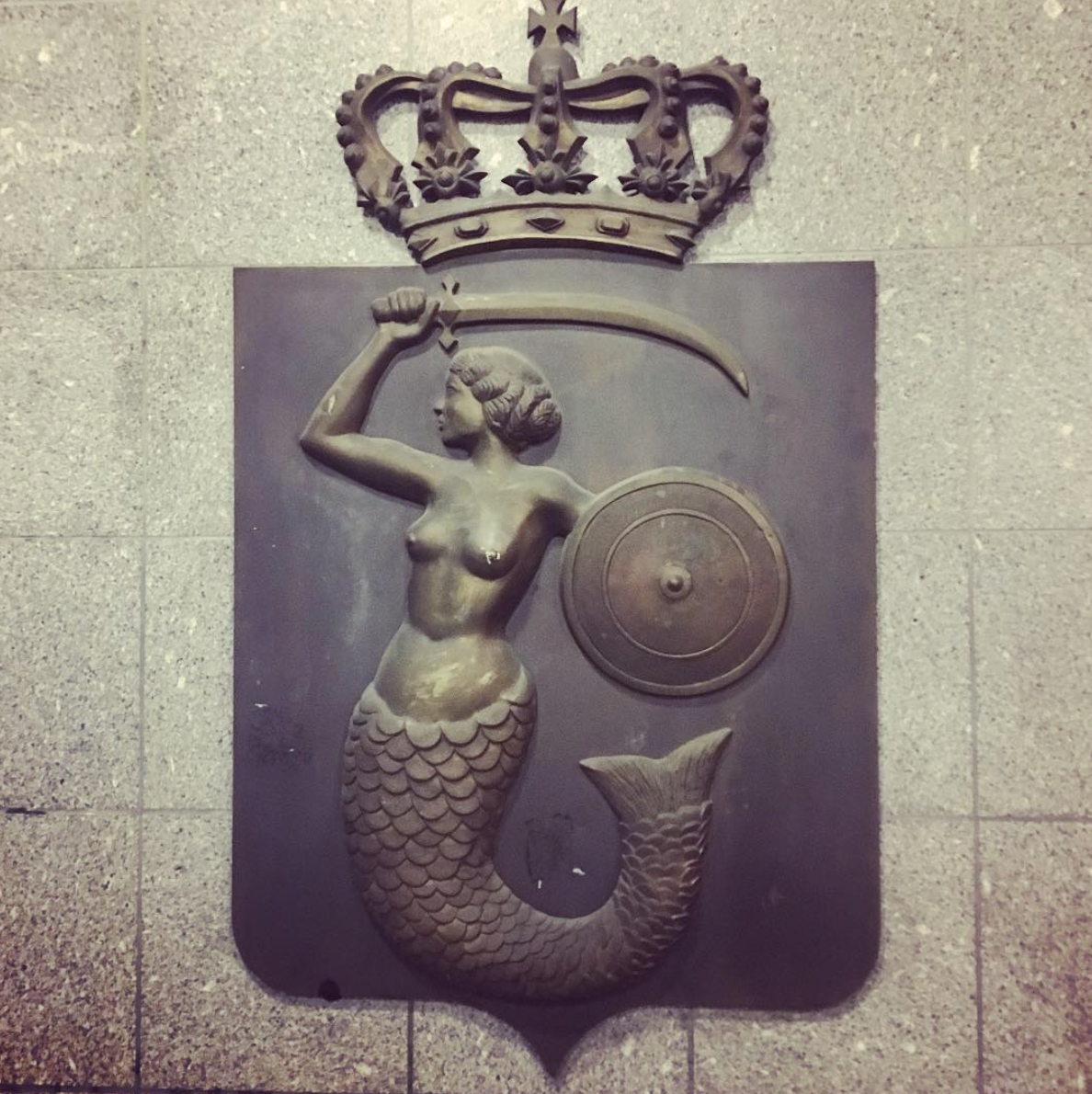
***
Marek Meduna
Maria Loboda




***
Agnieszka Kurant
I stand in solidarity with the Women’s Strike – the most intense anti-government protest in Poland since the 1989 collapse of communism. I join hundreds of thousands of women and men of all ages protesting against the erosion of Polish democracy, the misogynistic, autocratic, homophobic and xenophobic government, religious fanaticism and the abortion ban.
The current situation concerning abortion in Poland is based on the hypocrisy and cynicism of the Polish government, who is fully aware that some hundred thousand illegal abortions are conducted in Poland annually. Abortion is available in Poland, but it is a question of money and connections and therefore boils down to class divisions. It hits hardest into the poorest women who simply can’t afford it. The current system favors more wealthy women who have the means to pay for abortion. Contrary to the church’s propaganda, the religious beliefs and moral standing are most often irrelevant here. It all boils down to money.
Several Polish governments opportunistically refused to change the drastic anti-abortion law, as they needed the church’s support to win elections, to join the European Union or to further develop the destructive free market economy. As a result, the freedom of choice of Polish women became the bargaining chip in the name of neoliberal politics.
The younger generations or Poles are automatically counted as Catholic Christians, which is another hypocrisy since the society is gradually secularizing and hundreds of thousands of young people are distancing themselves from the church, which became highly compromised as a result of crimes perpetrated by pedophile priests and bishops trying to cover them up.
The government has alienated the women, the farmers, the teachers, the scientists, the intellectuals, the entrepreneurs, the sexual, religious and ethnic minorities, the immigrants, the artists, the disabled and recently even some members of the Catholic Church.
The collective intelligence of contemporary uprisings and social movements such as the Woman’s Strike will bring non-linear, unpredictable transformations into our societies. The revolution started by the empowerment of the Polish women will continue to grow and undoubtedly it will soon cause a major social change.
Meanwhile the current government has to be aborted.
My body my choice!
***
Artur Żmijewski
***
Dan Perjovschi
***
Dominika Trapp

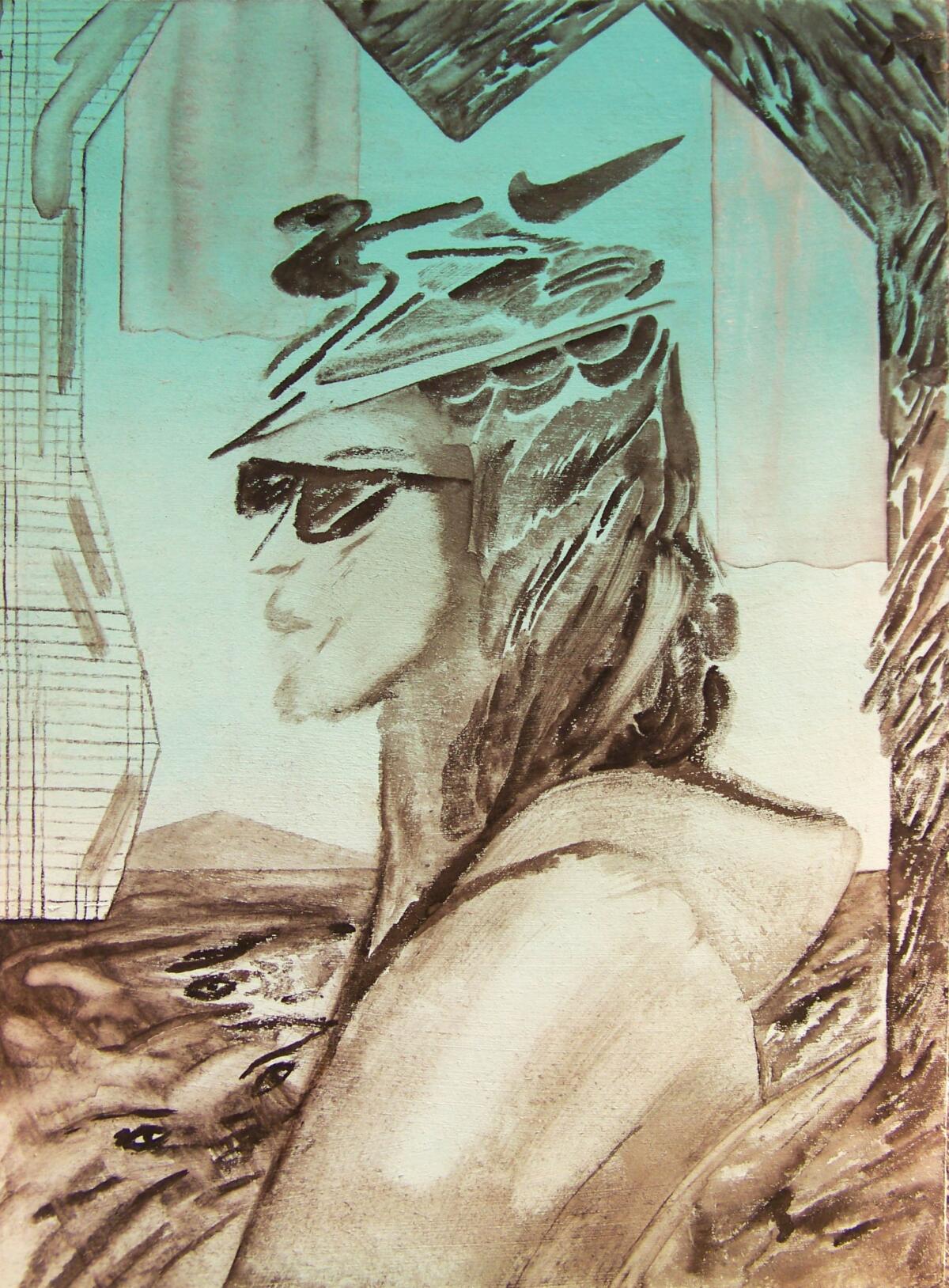
***
Dorota Gawęda and Eglė Kulbokaitė
***
GolfClayderman
***
Judith Bernstein
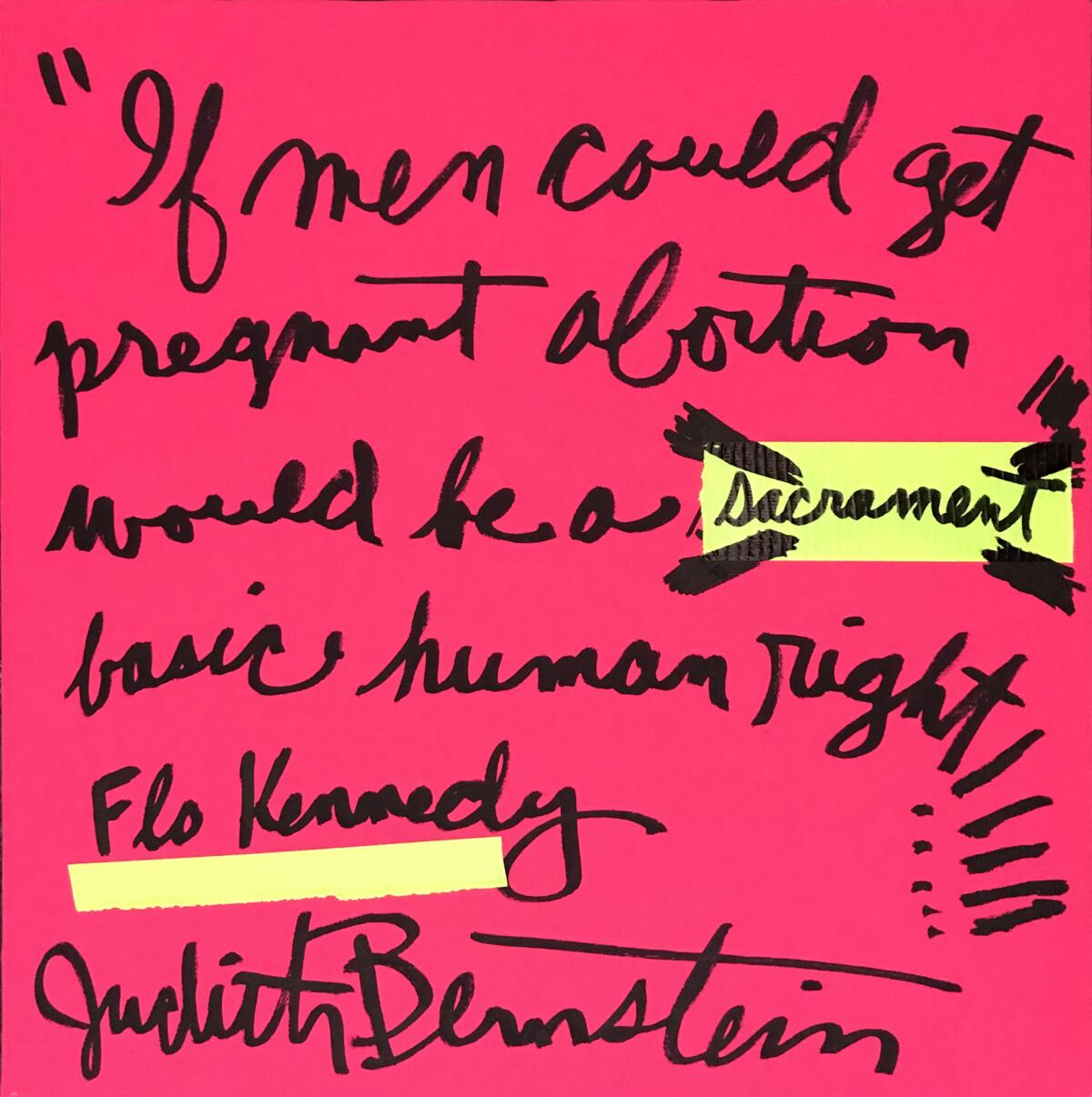
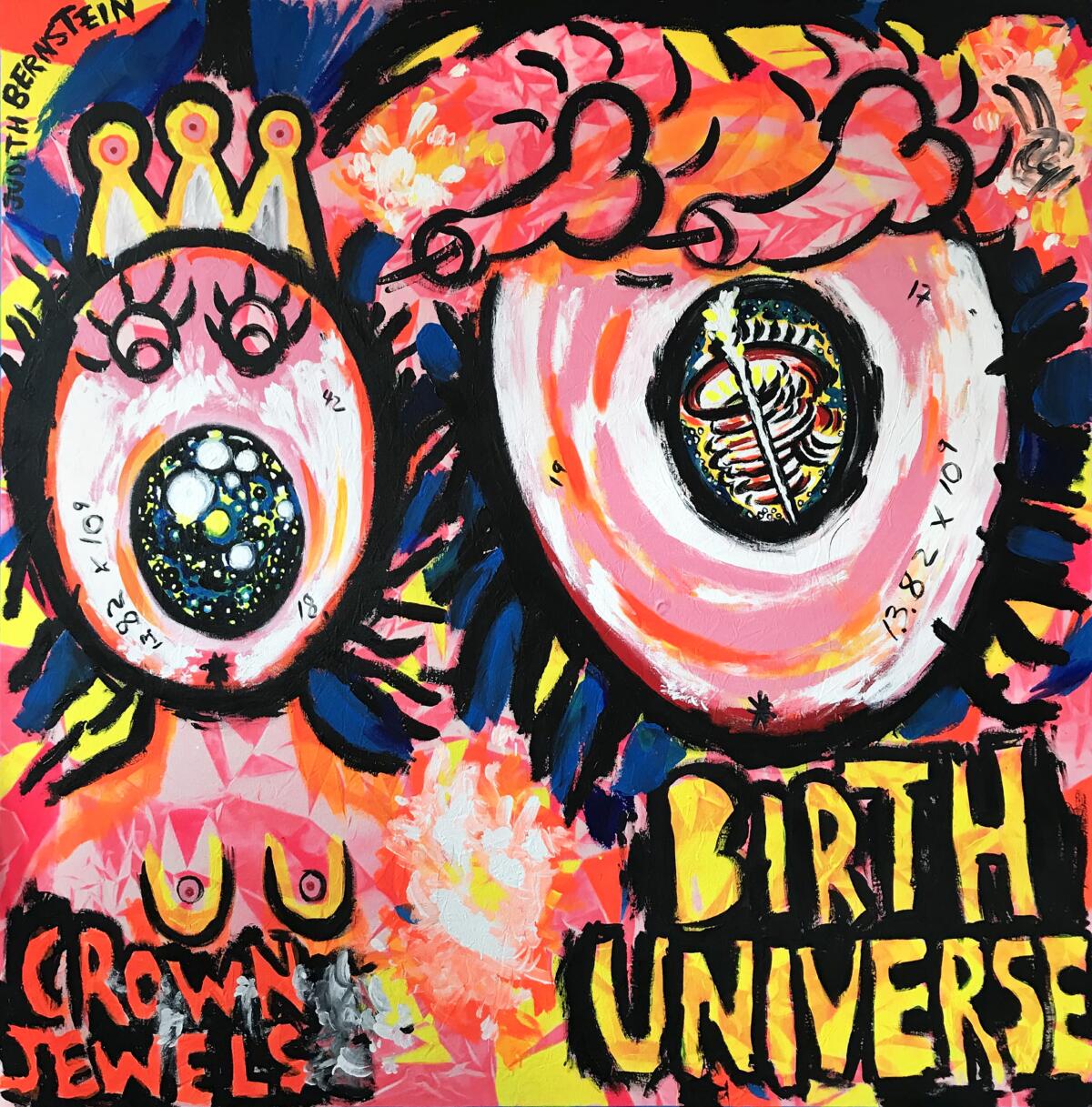
***
Karol Radziszewski
***
Kris Lemsalu
***
Marina Naprushkina
***
Peter Puklus
***
Renata Kaminska
Renata Kaminska’s Phantom Sculpture project started some time ago, when the Polish-born artist from Berlin began researching Rosa Luxemburg. Like her, she was born in Zamość. A biographical coincidence that prompted Kaminska to visit places in Poland that have a historical connection with the politician. What she found was in the first place nothing: disappeared or neglected buildings, no monuments, not even memorial plaques. Thus, on March 13, 2018, in Zamość, the plaque reminding of Rosa Luxemburg was removed. Although it is now likely that the house on which the board was attached since 1979, was mistaken for the birthplace of Rosa Luxemburg, the reason for the removal was – as the Rosa Luxemburg Foundation at least assumes – a political one, and it is part of a series of measures that starting in 2016 when our neighboring country started by law to eliminate street names and any public testimonies reminiscent of communism. This form of damnatio memoriae has been a popular policy since antiquity. It is also known from George Orwell’s novel 1984, in which disgraced un-persons retroactively were vaporized (deleted from publications). 100 years after her death, Renata Kaminska dedicates a series of sculptures to this demonstrative eradication of the memory of Rosa Luxemburg by installing her phantom sculptures. The very name already is reminiscent of non-existent official memorial sites and whose form is derived from empty banner holders. The Berlin group of sculptures called Phantom Monument II is complemented by information texts in the foyer.
Phantom Monuments were or will be shown in different constellations and sizes in Warsaw, Berlin, Zurich and Zamość.
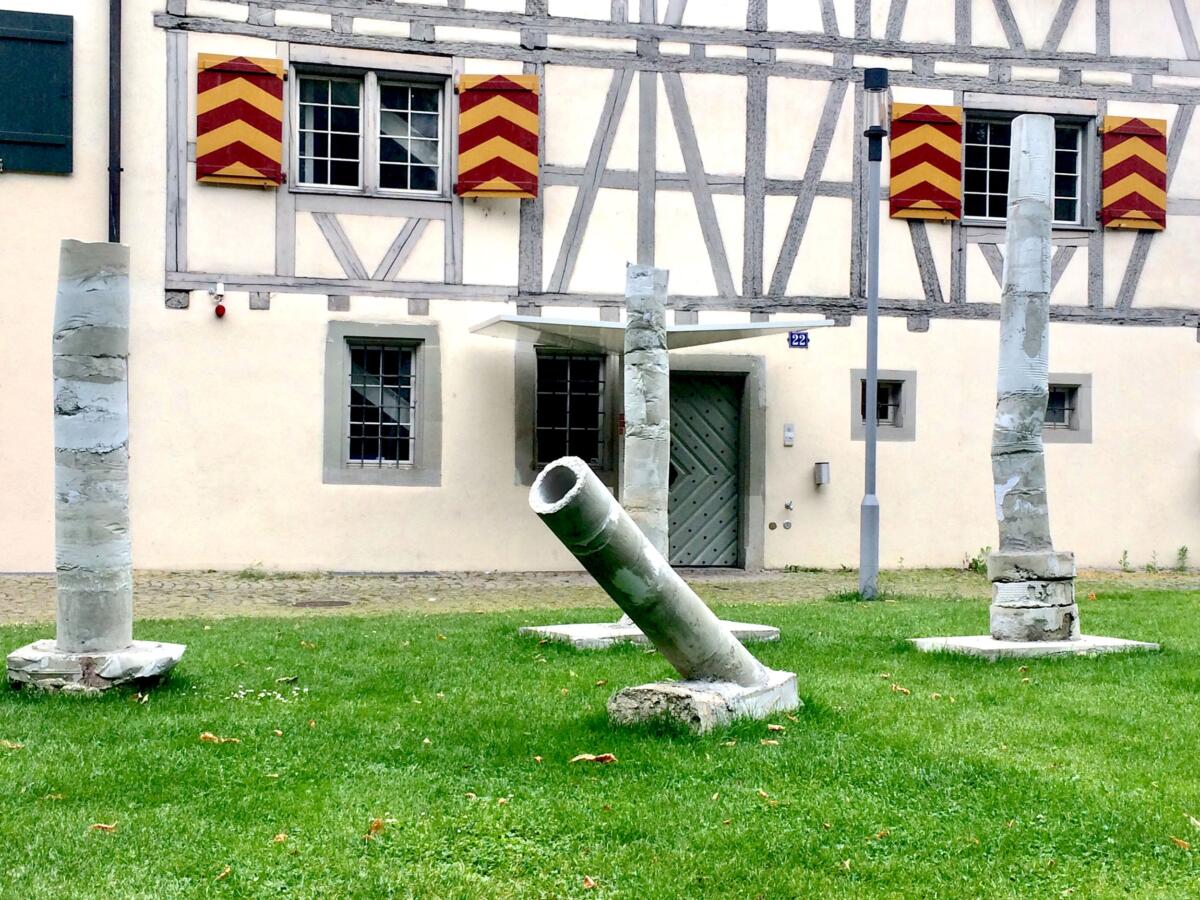
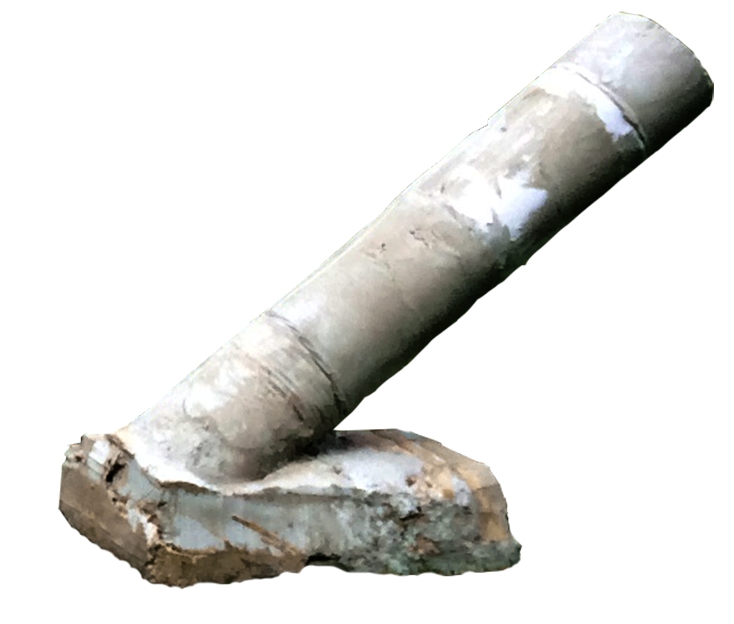
***
Anka i Wilhelm Sasnalowie
***
Betty Tompkins
***
Daiga Grantina
***
Margot Norton
I stand in solidarity with women in Poland and women everywhere who are advocating for a very basic right, which is the freedom to control their own bodies. Women are not things to own or to control. We are human beings, and human rights matter.
***
Valentinas Klimašauskas
“My pussy, my swamp!” I read posters in the hands of Polish sisters. What is my pussy, what is my swamp? The identity is a swamp, and for me to be Lithuanian means to be Polish, Jewish, Belarusian, Russian, Tatar, German, Swede, etc – it certainly means to be, to become less “real” ethnic patriarchal Lithuanian, less homogeneous, to metamorphose into more hybrid, more swamp-like, into the other.
Jestem kobietą. Я жанчына. Aš moteris. With all my unconditional love and support to Polish Sisters, I believe that this moment, this historical hour could be used as a wake up call to our societies. Our anger should go far beyond the issue of abortion and it should extend to the indignities of living in socially conservative societies. For decades, well, much longer we lived under flags of fake promises that our societies have chosen paths of a brighter, richer, more divine, purer, you name it, tomorrows, but on a way there we forgot what democracy and basic human rights are. Think of this historical hour as a chance – let’s not stop with protesting against the right to abortion but let’s continue fighting for the rights of minorities, let’s enrich our ecological and social systems, let’s create new vocabularies, new paradigms and networks, let’s grow the new swamps. And we don’t have much time to think about it – the ecological countdown already started.
And what is also very important – in no way let’s forget and leave our Belarusian sisters alone at this historical moment. Our neighbors outside the EU border – the Belarus people – still have an opportunity to fight the patriarch and to choose something else than only between the systems of so called former West and former East but to create something new, something different, something we all will learn from.
Valentinas Klimašauskas
Curator, hybrid and writer from Vilnius
***
Laima Kreivytė
I express my deep solidarity with Polish sisters. You are the embodiment of the freedom of choice!
***
Agnė Jokšė
***


